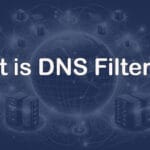The Importance of Email Security for Businesses of All Sizes
Today’s businesses do a lot of their communicating via email, whether they are communicating with their clients, their vendors, or even internally with other departments. This means that there’s a lot of information moving around, and if your email is not perfectly secure, that information could fall into the wrong hands. Here’s what you need to know about email security no matter how large or small your company might be. Lack of Security is a Huge Risk There’s a lot at stake these days. Even the companies charged with the task of determining your creditworthiness have been the victims of serious data breaches that have cost them millions of dollars. As a small business, you may not think you have that much at stake, but a data breach is a data breach no matter the size. Failing to properly secure your emails – especially those that contain customer or client data – can be a big mistake, and it could even cost you your business. You Need Confidentiality Confidentiality is important, particularly when dealing with things like taxes, vendors, and online shopping related to your business needs. Unfortunately, there’s quite a bit of information that can be gleaned from emails alone and failing to properly secure them with the latest encryption technologies may result in the loss of that confidentiality. What’s more, should emails fall into the wrong hands, they could easily “spoof” your company email, which can be detrimental to your business. Employees Deserve Protection If your employees utilize email at work, it is crucial that they receive some training on the best ways to protect themselves and the company. For example, they should always scan their emails for viruses, they should never open messages from senders that aren’t trusted, and they should never follow any links inside emails unless they are 100% certain of the sender’s intentions. This not only protects your business, but also your employees as they may have sensitive information on their computers that can be accessed via an email breach. Important Email Safeguards Now that you’re aware of the dangers of failing to secure your email, take a look at some of the services that will serve your company well. Anti-spam: This prevents spam from reaching your inbox in the first place, which is an added layer of protection for both you and your employees. Anti-phishing: Phishing is a real concern, so make sure the security you choose blocks malicious links, attachments, and forms. Outbound scanning: This ensures that users don’t accidentally send out a virus or reply to something malicious. Reporting: With the right reports, you’ll learn more about the biggest threats to your company and the volume of email being processed on your network. Encryption: This is the key for email safety and it ensures privacy, regulatory compliance, and more. Continuity: Prevent the accidental deletion of important messages and access your messages from anywhere with the right continuity service. Archiving: Many companies need to retain email for long periods of time for compliance reasons or just general added security. Email security is a must for any company, regardless of its size – and regardless of its age. Fortunately, you can gain access to all-in-one email security suites that will protect you, your employees, your business, and your clients from breaches that can have serious negative effects. When paired with solid network design and other security features, your company will feel like Fort Knox, and you can rest comfortably knowing that you are secure.
The Importance of Email Security for Businesses of All Sizes Read More »





